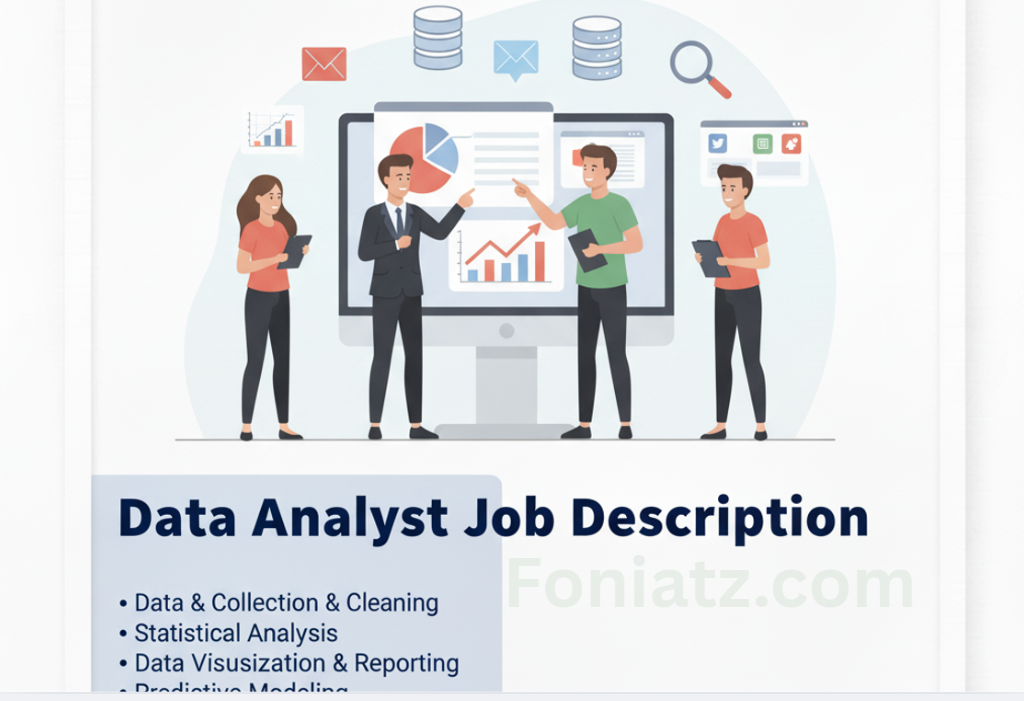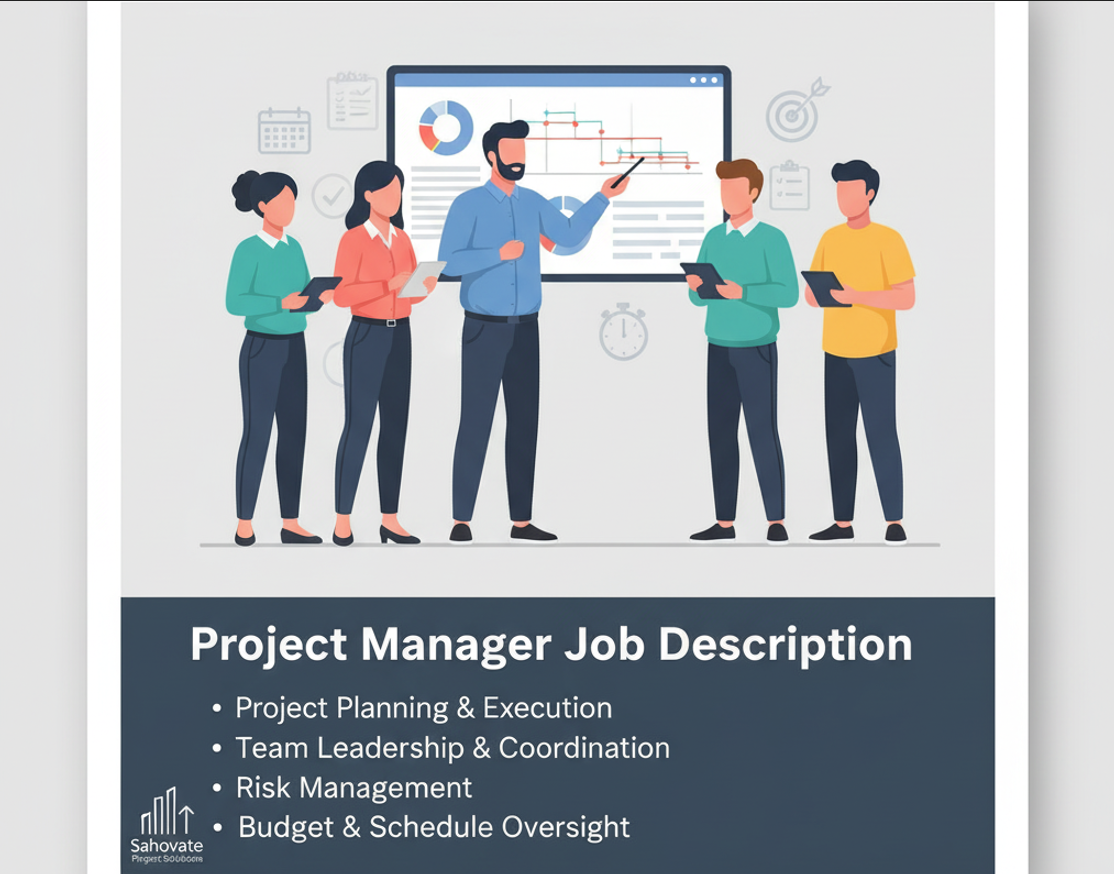Data Analyst Job Description: Key Skills & Duties
Hello, wonderful readers! We’re thrilled to have you here at Foniatz.com, your trusted source for straightforward career advice in Tanzania. As our economy grows in areas such as agriculture, healthcare, and technology, roles like data analyst are becoming increasingly important. If you’re curious about what it takes to land a data analyst job in Tanzanian companies, or if you’re an employer looking for the right skills, this article is for you. We’ll cover the job description, key skills, essential tools, and more, based on current trends in 2025. Our goal is to help you navigate this exciting field with confidence. Let’s dive right in!
What Does a Data Analyst Do in Tanzanian Companies?
Data analysts in Tanzania play a crucial role in transforming raw data into actionable insights that enable businesses to make informed decisions. In companies across various sectors, including agriculture, healthcare, finance, and NGOs, such as Muhimbili National Hospital or local firms in Dar es Salaam, data is collected, cleaned, and analyzed to identify trends, solve problems, and support growth. For example, in an agricultural business, you might analyze crop yields to improve farming practices, or in a health NGO, track patient data to enhance services.
Tanzanian companies value analysts who understand local challenges, such as working with data from rural areas or complying with regulations from bodies like the Tanzania Revenue Authority. It’s a role that combines technical expertise with real-world impact, making it ideal for those who enjoy solving puzzles and helping teams succeed.
Key Duties of a Data Analyst
In Tanzanian companies, data analysts are responsible for a range of tasks that support both daily operations and long-term strategies. Drawing from recent job postings, here’s what you can expect:
- Collecting and Cleaning Data: Gather information from sources such as surveys, databases, or spreadsheets, and then clean it to remove errors. This is crucial in Tanzania, where data may come from field reports in places such as Arusha or Dodoma.
- Analyzing Data for Insights: Utilize statistics to identify patterns, trends, and forecasts. For instance, in a consulting firm like TICGL, you might analyze market data to guide investment decisions.
- Creating Reports and Visuals: Develop dashboards and reports to share findings clearly. Tools help present data in ways that non-technical folks, like managers, can easily understand.
- Supporting Decision-Making: Collaborate with teams to apply insights, such as enhancing efficiency in pharmaceutical companies or evaluating program success in NGOs like ICAP Tanzania.
- Ensuring Data Quality: Verify accuracy and confidentiality, particularly with sensitive information in the health or finance sectors.
- Collaborating on Projects: Team up with others, sometimes involving fieldwork or travel to districts outside major cities.
Entry-level roles focus on fundamental analysis, while experienced analysts lead projects or handle advanced modeling.
Key Skills and Qualifications Needed
Tanzanian employers seek a blend of technical and soft skills, plus relevant education. From the 2025 job trends, here’s what stands out:
- Education: A bachelor’s degree in Computer Science, Statistics, Data Science, or a related field from a university like the University of Dar es Salaam. Diplomas from the Tanzania Institute of Accountancy can serve as a starting point.
- Technical Skills: Strong grasp of statistics, data cleaning, and analysis. Proficiency in programming, such as Python or R, for handling large datasets.
- Soft Skills: Great communication to explain insights, problem-solving for tackling local data issues, and attention to detail. Teamwork is key, especially in multicultural Tanzanian workplaces.
- Experience: 1-3 years for junior roles, often starting with internships. Certifications like Google Data Analytics or Microsoft Power BI add value.
- Other Must-Haves: Fluency in English and Swahili, as well as adaptability to new tools and occasional travel. Employers, such as those in USAID projects, value experience with ethical data handling.
Building a portfolio of projects, like analyzing public datasets on Tanzanian agriculture, can help you stand out.
Essential Tools for Data Analysts
Data analysts in Tanzania utilize a combination of accessible and powerful tools to accomplish their tasks. Based on standard practices and training courses:
- Excel and Google Sheets: For everyday data cleaning, pivot tables, and basic visuals—widely used due to their simplicity and availability.
- SQL: To query databases and pull specific data, essential for roles in structured environments like finance.
- Python and R: For advanced analysis, scripting, and stats. Python’s libraries, such as Pandas, are popular for automation in rapidly growing tech scenes.
- Tableau or Power BI: For creating interactive dashboards to visualize trends, helping present insights to stakeholders.
- Other Tools: Big data options, such as Hadoop, are suitable for larger sets, while Excel and SQL are more commonly used for entry-level work. In Tanzania, mobile-friendly tools are particularly useful for collecting field data.
Many companies offer training, so starting with free online resources can help you get up to speed.
Salary Expectations in Tanzania
Salaries for data analysts vary by experience, location (with higher rates in Dar es Salaam), and sector. From 2025 data:
- Entry-Level (0-2 years): TZS 800,000 to TZS 1,200,000 per month (about $290-$430 USD), often with learning perks.
- Mid-Level (3-5 years): TZS 1,500,000 to TZS 2,500,000 per month ($540-$900 USD), including bonuses for project impacts.
- Senior-Level (5+ years): TZS 3,000,000 to TZS 4,500,000+ per month ($1,080-$1,620+ USD), especially in NGOs or consulting, with benefits like health coverage.
Remote or freelance roles can offer higher pay, and Tanzania’s lower living costs make these figures go further.
Opportunities and Challenges
With Tanzania’s digital push, such as the Digital Tanzania initiative, jobs are emerging in startups, the government, and international organizations. You could analyze data for sustainable farming or health programs. Challenges include limited resources in rural areas and keeping up with technological changes. Still, these also build a valuable skills network at events like tech meetups in Dar es Salaam, which can help find openings.
Thank You for Choosing Foniatz.com. We’re Here for Your Success!
We’re truly grateful that you visited Foniatz.com, the best place for warm, practical career advice explicitly tailored to Tanzanians. As your top resource for growing professionally, we’re committed to supporting your journey every step of the way. Whether you’re aiming for a data analyst role or hiring one, we wish you clarity, growth, and significant successes ahead. Pop back soon for more guides, and share your thoughts in the comments.
Best wishes from our caring team!




